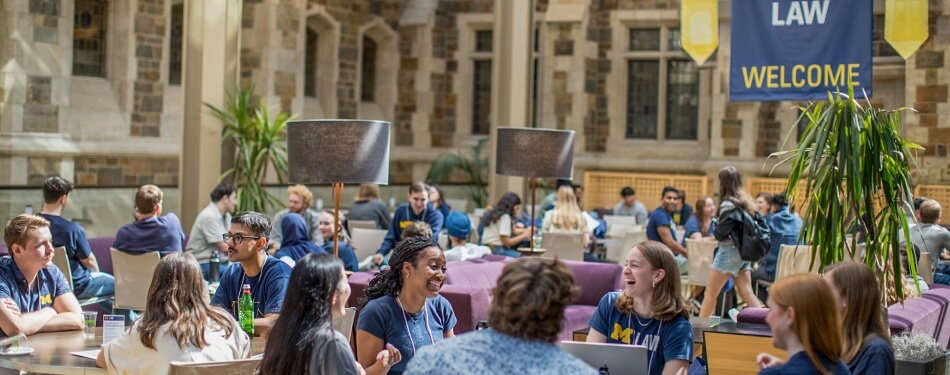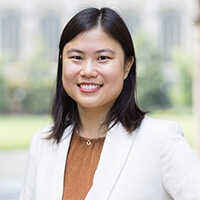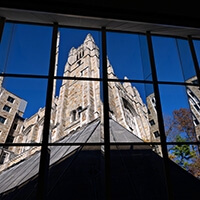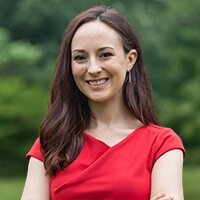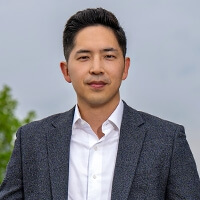At the beginning of each academic year, the Law School’s Admissions Office compiles an array of statistics of the incoming class that paints an impressive picture. Alongside a list of notable undergraduate schools attended are enviable LSAT scores and undergraduate grade point averages. But those statistics are only a small part of the picture.
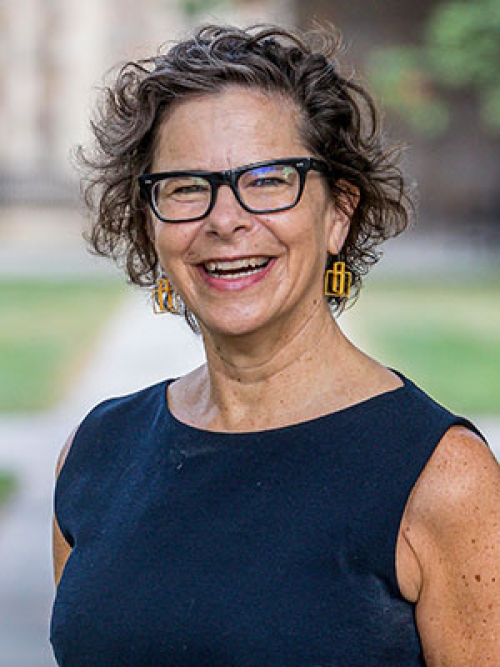
Behind each of those numbers is a new student who has traveled a unique and interesting path to the Law School. The 320 students making up the Class of 2027 range from paralegals and military veterans to journalists and athletes.
“Literally every single member of the class has done at least one thing that I found interesting,” said Sarah Zearfoss, ’92, senior assistant dean for admissions. “We have a striking amount of breadth and depth in a number of fields where the insights will be illuminating in the law school classroom.”
This year was also notable for the impact of the US Supreme Court’s June 2023 decision in Students for Fair Admissions v. Harvard, which struck down the use of race-based affirmative action in college admissions. While the University of Michigan has had a race-blind admissions process since 2007, following the passage of a state ballot initiative in 2006, this is the first academic year that most other colleges have felt the impact of the case.
The effect on Michigan Law has included a busier waitlist season (because everyone’s yield models—their expectations for how many people would enroll from a given number of offers—were upended); an increase in yield for people of color; and a decrease in yield for first-generation college students of any race, as many universities migrate from an admissions process in which race was a factor to one where socioeconomic diversity takes on increased weight.
“It will be some time before we get good data on outcomes at other schools, but I’m eager to get a sense of the landscape as a whole,” said Zearfoss.
Read further for a statistical profile of the Class of 2027 and individual profiles of just a few members of this cohort of students.
2027 JD class profile
Class of 2027 Academic Information
Applied
6,805
Enrolled
320
Median GPA
3.86
Median LSAT
171
Majors Represented
63
One or more years off after undergrad
79%
Most Popular Undergrad Majors
- Economics
- English
- History
- International Studies
- Philosophy
- Political Science
- Psychology
- Public Policy
Class of 2027 Demographics
Racial Composition
Percentages include students who identify in more than one category.
Arab American/North African
7.2%
Multiracial
12.2%
Asian American
15.6%
Native American
5.3%
Black/African American
11.6%
White
59.7%
Latinx
11.9%
Not indicated
<1%
Other Demographic Indicators
First-generation College Graduate
13.4%
Mean Age
25
Age Range
21-41
LGBTQ+
24.6%
Gender

Men
49.3%
Women
48.4%
Nonbinary or other genders
2.1%
Class of 2027: Where are they from?
Michigan Residents
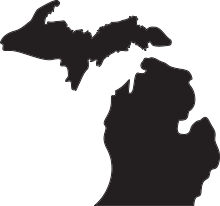
21.5%
States Represented

42
Includes Washington, DC, and Puerto Rico
Countries Represented

18
Top Undergrad Schools
- Cornell University
- Harvard University
- Michigan State University
- New York University
- Northwestern University
- University of California, Berkeley
- University of California, Los Angeles
- University of Florida
- University of Michigan
- University of Wisconsin
- Washington University
The Class of 2027 includes
Advanced Degree Holders
39
City Year Alumni
3
Fulbright Scholars
6
Military Veterans
13
Peace Corps Volunteer
1
Truman Scholar
1
Meet a few of our students
Jordan Barpal
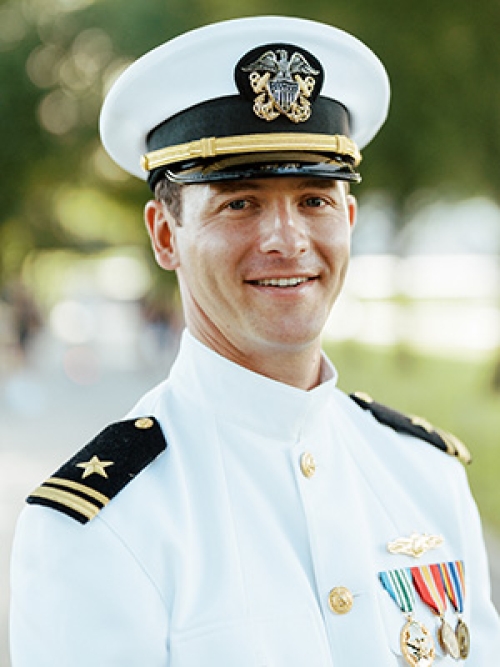
When Jordan Barpal compares the work of lawyers to that of intelligence officers, he speaks from experience, having spent several years as an intelligence officer in the US Navy.
“They each have to process a great deal of information and synthesize that information into a coherent narrative, which they then must relate to their clients,” he said. “The quality of their analysis and ability to cogently articulate it has significant consequences.”
His work in the Navy focused primarily on the Indo-Pacific region, where he analyzed information and briefed senior leaders on the implications of that information. His decision to attend law school stemmed from a desire to find other ways to have a positive impact.
“Law school was an aspiration of mine even prior to joining the military, but for various reasons my journey took me elsewhere in the intervening years following undergrad. My time in the Navy instilled in me a strong commitment to service and impact, so finally finding myself in law school with that experience and motivation feels very much like a full-circle journey.”
William Paul Ellis
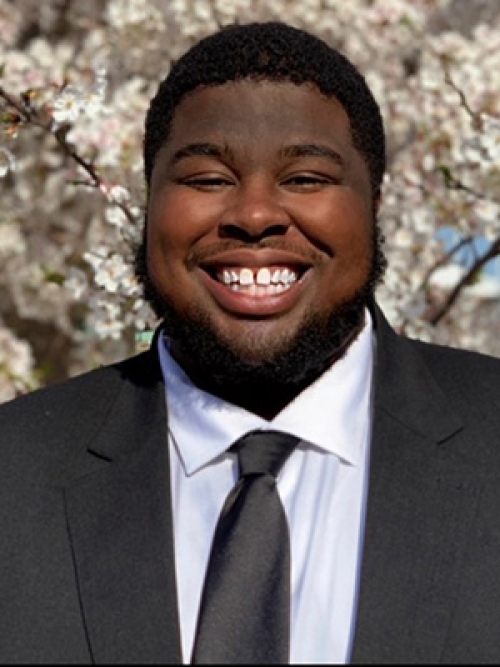
For William Paul Ellis, the desire to attend law school comes from a lifelong love of reading and history. He believes that, at its core, law school is about understanding the history of the law and how it shapes the world today.
“In many ways, being an attorney is as close as one can get to being a real-life superhero,” he said. “You possess a level of specialized knowledge that very few people have and, in turn, have the opportunity to better the lives of ordinary people. I hope to use all that I learn as a Michigan Law student to help those who need it the most.”
Ellis arrives at Michigan Law following three years working in public relations and internal communications at Google, an experience that taught him the value of creative storytelling and crafting compelling narratives. He believes this skill set is necessary for any legal career.
“I plan to work in education law and policy, and knowing Michigan Law’s storied history of standing for equitable access to education is what really drew me to the Law School.”
Angie Gou
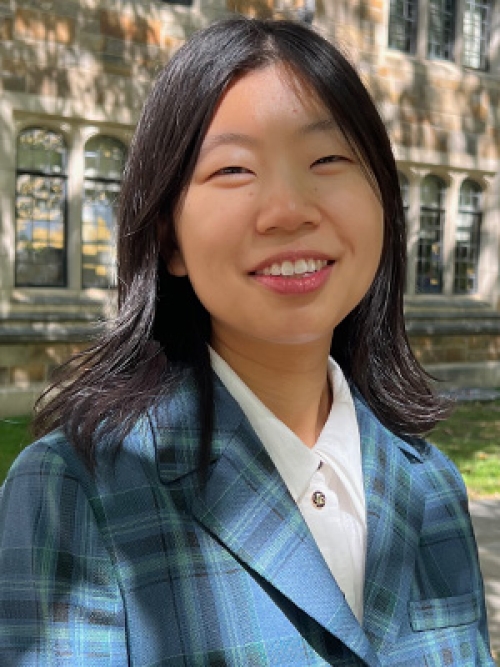
Before coming to Michigan Law, Angie Gou already had a solid background in the law, having managed a small appellate litigation firm that emphasized plaintiff-side work. In the same role, she edited and created content for SCOTUSblog.
“Working at a small firm helped me understand the dedication and grit required of the attorneys to persevere through a case,” said Gou. “Each case commanded hours of research, brief drafting, and revision. Seeing the real impact our work had for our clients, however, inspired me to pursue a career in advocacy.”
In between work and law school, she took a year off and traveled far from the practice of law. Literally.
“For the past year, I have been teaching English in a rural part of Osaka, Japan. That reinforced how much I enjoy helping others to achieve what they want. At the same time, I was frustrated by the many systemic issues that stood in the way of my kids getting the most out of their education. I believe working in law is the most effective way to create systemic change.”
Melissa Itzkowitz
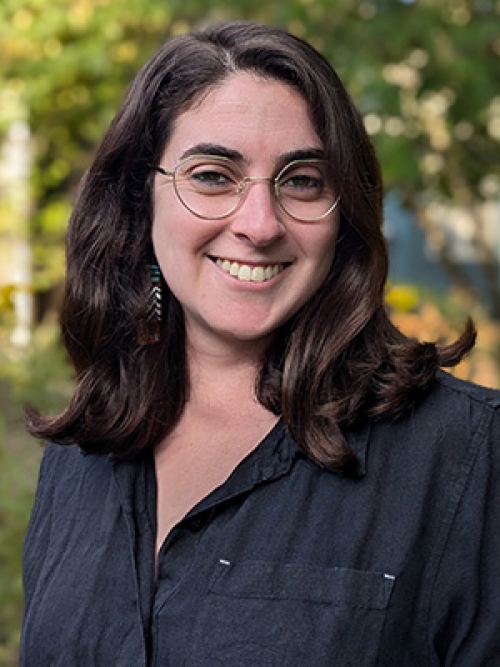
While Melissa Itzkowitz considered a law career while serving on the mock trial team in high school, she pursued her love of anthropology as an undergraduate at Barnard College and continues to do so as a graduate student at the University of Michigan. However, she still felt drawn to the law.
“My desire to go to law school and to get a doctorate in anthropology fluctuated with my life and professional experiences, with neither option feeling quite right throughout much of that time,” she said. “After I was accepted to U-M’s Department of Anthropology, it clicked for me that I could do both.”
Rather than divide her attention, this dual-degree student sees her law studies as complementing her anthropological research, which focuses on the effects of a particular citizenship law in Portugal on migration patterns, antisemitism, and “Portuguese-ness.”
“Additionally, Michigan’s European Legal Studies Program will allow me to study EU law in both the US and Europe as an American JD student, which will directly contribute to my PhD research.”
Leila Jiadi
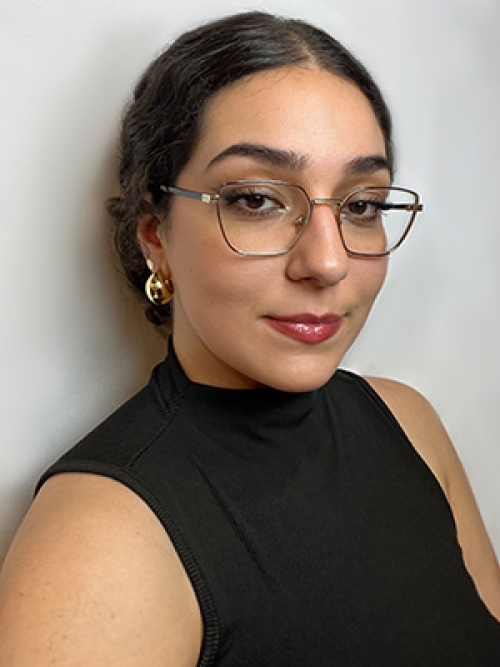
Leila Jiadi spent most of her time in the Manhattan District Attorney’s Office as a paralegal, performing a range of duties—and often becoming frustrated with the narrow approach the law sometimes has for broad and complex issues real people are facing.
“But there was nothing more gratifying than working with the attorneys to guide ordinary people through the system,” she said.
Jiadi then became an investigative analyst in the office’s Human Trafficking Unit, where she met with victims, tracked subjects’ activities online, and performed other tasks. So when it was time to apply to law school, she was thrilled to learn about Michigan’s Human Trafficking Clinic + Lab.
“Survivors of human trafficking can have complicated life stories that traditional approaches to law and prosecution do not accommodate, especially if they are not trauma informed and victim centered,” she said. “That Michigan Law proactively educates their students, and prepares them to consider the many ways this particularly vulnerable cohort of survivors needs help, gives me hope that the vision I hold of a more inclusive approach to law has already begun at Michigan.”
Manuel Lewis
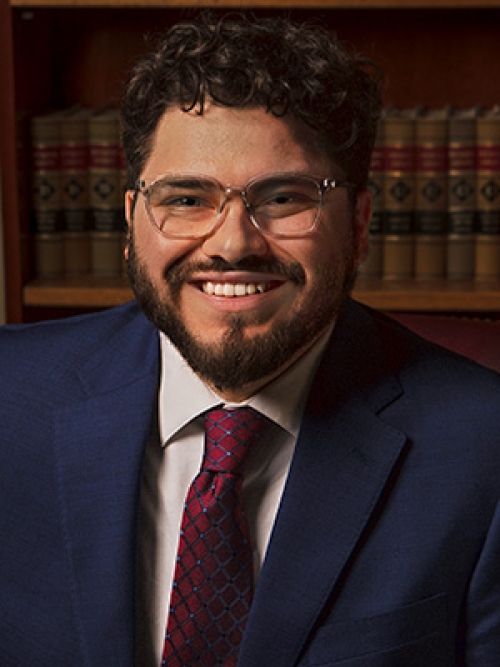
Manuel Lewis, whose family is from the Gila River Indian Community in Arizona, spent his career as a public safety telecommunicator, or 911 dispatcher, for his family’s tribe. In that job, he managed emergencies and helped people through one of the most critical times of their lives.
“No one ever calls 911 because their day is going well,” he said. “And long after the job of managing an emergency, there is a lot of work to be done, especially throughout Indian Country. There is even more work to be done to prevent the same emergencies from occurring in the first place.”
Lewis decided that attending Michigan Law was the best way to learn how to do that work.
“I knew I wanted to attend a law school that provided impressive Native American law course offerings, had a supportive and growing Native community, and felt like a home away from home. I already knew Michigan was academically rigorous, but I quickly began to realize that Michigan Law also had an institutional commitment to developing, expanding, and diversifying the communities here on campus.”
Lee Rodriguez
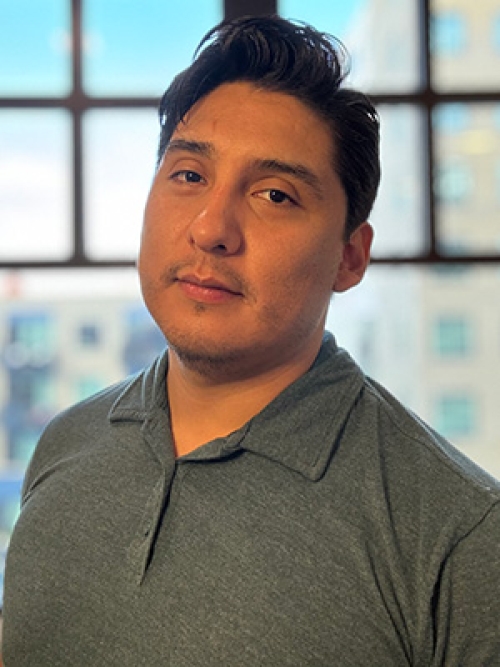
As early as his undergraduate years, Lee Rodriguez focused his career on public health. He traveled overseas to help create temporary clinics in rural villages, treat ailments, and—most importantly—educate people on the best public health practices for preventive care. His graduate studies then took him to New York City, where he focused on epidemiology and worked with at-risk communities in East Harlem, Brooklyn, and Queens.
“During the program was when everything clicked,” he said. “I understood that if I wanted to make real, lasting, and effective change in health care, I needed to go into the law.” In fact, his master’s thesis focused on how certain LGBTQ+ laws and policies affected how individuals at risk for HIV infection received life-saving drugs. The next logical step was Michigan Law.
“I knew the Law School had the foundational program to support students’ success in any field they wanted. It will now bring me into the legal understanding of the issues in medicine and provide the best tools for change.”

